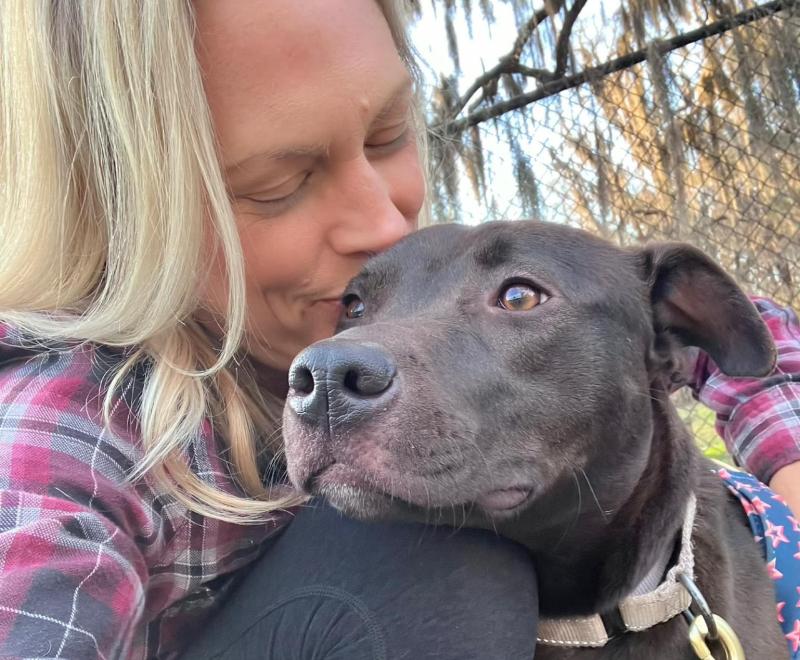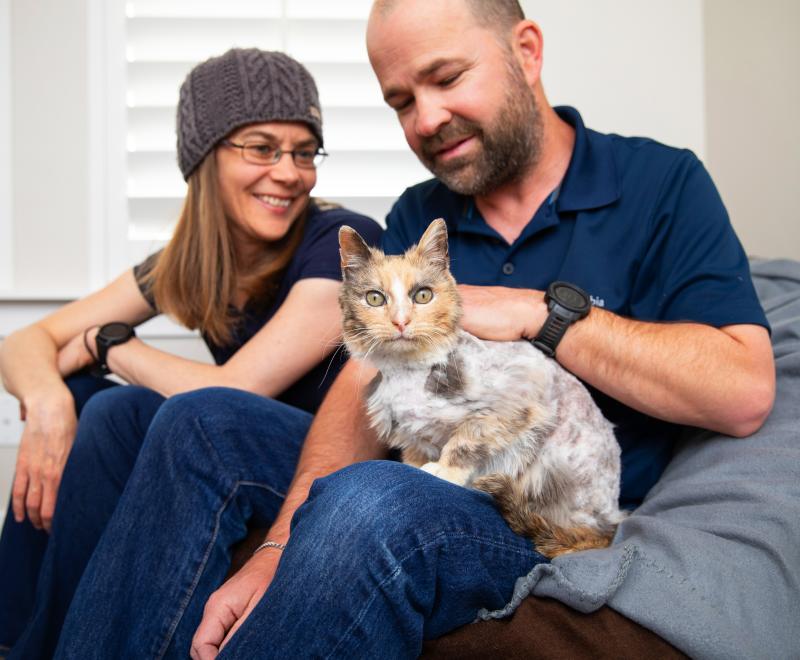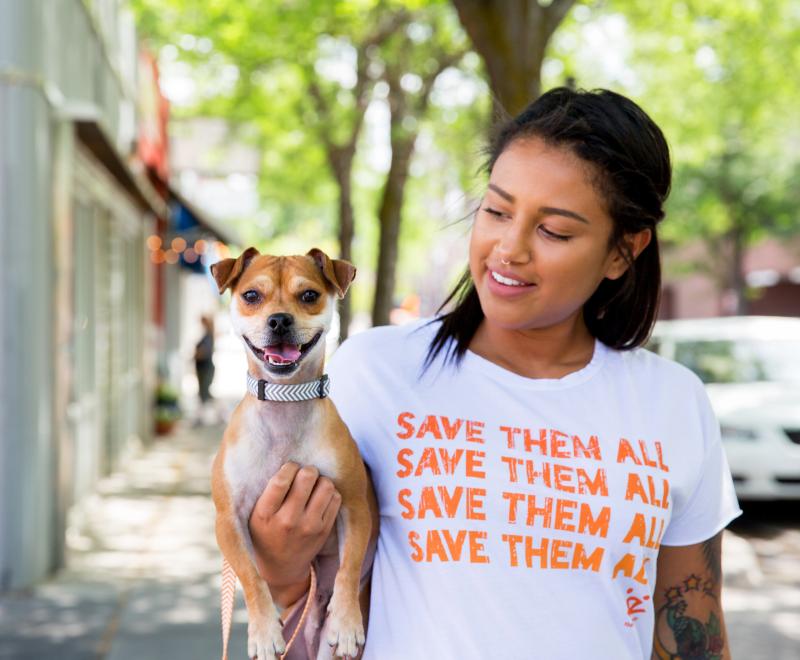A new life for dogs rescued from dogfighting

If only Tank could talk, the stories he’d tell.
The “old man,” as they call him, slowly ambles from spot to spot. He can’t see very well, and his hearing isn’t so good. But despite his limitations, Tank moves with a cool, composed demeanor that confirms in no uncertain terms: This unperturbable old boy has seen and heard it all.
Twelve-year-old Tank is the senior citizen in a group of 29 dogs rescued last summer from a dogfighting case in Horry County, South Carolina. It wasn’t the first dogfighting scene visited by Justin Wyatt, the local police captain who was also responsible for the Horry County Animal Care Center in Conway, South Carolina.
“It doesn’t matter who you are or where you come from: Most everybody agrees that dogfighting is bad,” says Justin. Indeed, dogfighting is illegal in all 50 states. Yet, 17 years after the infamous Michael Vick case shed light on the horrors of dogfighting, it is still prevalent in many areas of the country.
As the warrants were served and the Horry County police gathered the dogs for transport to the Horry County Animal Care Center, Justin had a lot on his mind regarding the dogs’ future. “Any municipal or county government has much to consider in dogfighting cases,” he says. “My first thought was let’s get somebody in here who can help us make the best decision.”
A helping hand for Horry County
That somebody, it turns out, was already helping out at the Horry County shelter. Jen Deane, a dog behavior expert who works with dogs exposed to trauma, had already been helping some of the dogs at the shelter through a grant from Best Friends for a dog behavior pilot program.
Supporting dog behavior programs that include training and enrichment for dogs rescued from difficult situations is one of the ways that Best Friends is helping save more lives to reach no-kill in 2025.
[Reviving the spirit of a South Carolina animal shelter]
“We have some history with dogfighting in this area,” Justin says, “and one case in particular did not have a good outcome for the dogs. With so much misinformation out there about fighting dogs and attorneys worried about liability, the clock was ticking from the moment we got the dogs. Without the intervention of Best Friends and Jen, they would have been euthanized.”
Following Jen’s initial assessment of the 29 dogs and discussions with Justin about the best option for the dogs’ future, it was decided to transfer them to two rescue organizations that Jen works with: 17 (including Tank) to Renegade Paws Rescue in Savannah, Georgia, and 12 to Beyond the Fight Initiative in Palm Bay, Florida.
Best Friends has contributed $16,000 toward the general care, including boarding costs, of the dogs at both locations.
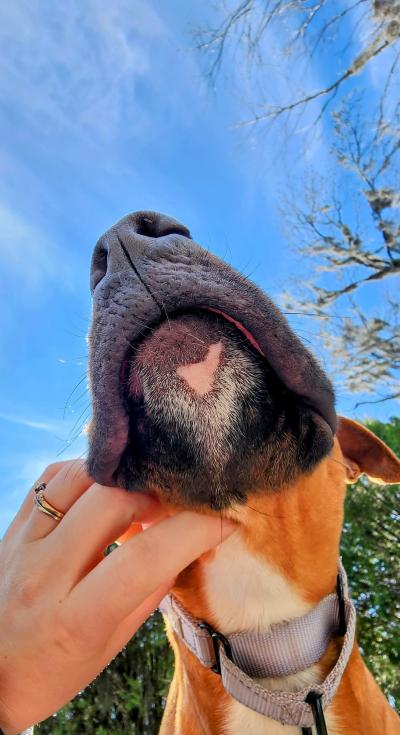
Helping underdogs rise up in Savannah
With distinctive new names such as Venus Moon, Nutmeg, and Rainbow Bright, the dogs in Savannah are already getting a new start in life. And their transfer was just in time.
“People read all the time about dogs being seized by officials, and they think the dogs are OK,” says Jen. “But if they are not placed with someone to care for them, they are killed. They’ve been through hell already. The least we can do is give them a good life.”
Jennifer Taylor and her staff at Renegade Paws Rescue have helped their share of dogs rescued from fighting rings. So when Jen called to see whether Renegade would take some dogs from the case, the answer was a resounding yes.
“They just love people,” says Jennifer of her 17 new residents. “Jen comes in every other week to work with them, and when she’s here, she works with the dogs up to 10 times each day. And when she’s not here, we speak with her often on the phone and online.”
Renegade’s new Underdog Uprising program is designed for dogs from court cases and other difficult situations to give them a leg up on new lives. What makes Underdog Uprising truly special is that it matches each dog with a human advocate.
“Every two weeks, our volunteers come in for a training class that covers all the topics our advocates need to work with these dogs,” says Jen. “We cover such topics as how to work with high-energy dogs, handling dogs with mouthy behavior or dogs who like to jump on you — things like that.”
The advocates come in two or three times a week to spend time with “their dog.” The frequent interaction helps the dogs build trust, learn to be comfortable walking on a leash, and learn other skills that will give them a better chance at being adopted.
Having people willing to look at these dogs for who they are rather than where they came from makes Jennifer particularly proud. “And if we can be successful with this new program,” Jennifer says, “we can show the world that this can be successful in other places and save so many lives.”
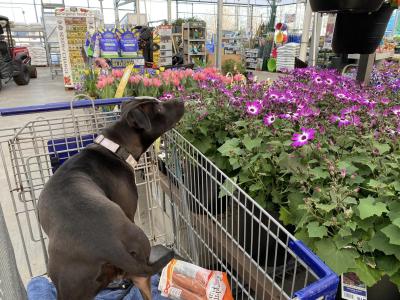
A dozen more to Florida
Ashley Dames calls her Beyond the Fight Initiative a halfway house for dogs from court cases and other difficult situations. Beyond the Fight has taken in the other 12 Horry County dogs and is providing them with training and enrichment.
Jen has been heading south to Florida to work with the dogs there from Horry County following her biweekly stop in Savannah. In between, she’s always available for consultation.
Ashley’s work with dogs like those from the Horry County case all started when she first volunteered at a pet food pantry years ago. The pull toward working with animals was strong. She met local rescue groups, got involved in projects, and volunteered at every place possible to learn as much as she could. And then she met Diamond, a dog also rescued from dogfighting, who Ashley says changed the whole trajectory of her life.
[Historic victory for dogs in Florida]
Diamond was suspected to have suffered terrible abuse as a bait dog (used to provoke and train fighting dogs). “I didn’t know anything about dogfighting at all,” Ashley says. “But she was just a wonderful dog. She had some anxiety issues and other behavioral problems. But I jumped in with both feet and learned everything I could. I had her for seven years, and she inspired me to help more like her.”
Ashley says the happy dozen in her care from Horry County — Mama, Doug, Crawl, Frick, Amelia, Minnie, Bateman, Gigi, Milo, Willow, Squints, and Mini Grinch — are all “absolute love bugs.”
“Willow will climb right into your lap,” she says. “Doug is a fun-loving, goofy dog who loves life. He also loves all people, races around the play yard to do zoomies, and is super curious and likes to be involved in everything. Mama is a happy girl who really thinks she’s a lap dog and likes to sneak in kisses. Crawl is a shy girl who opens up after a few gentle pets. She gets her name because when we first got her, she crawled everywhere and most of the time needed to be carried from place to place.”
“It’s amazing to me the process that court case dogs must go through,” she says. “They get seized by law enforcement, and then they are put in some sort of holding facility. And then they have to wait at the holding facility until the court case ends before they can get released.
“What a lot of people don’t seem to understand is once they get released, most of the time they are killed,” she said.
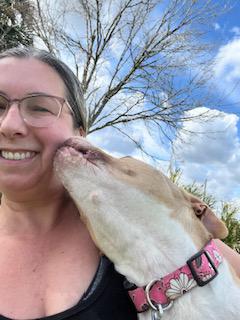
Tank and his new pal, Cindy
Meanwhile, papa Tank has a new full-time advocate in fellow senior Cindy Weimer, who’s been volunteering at Renegade since last summer.
“It’s perfect for me because I wanted to go in and spend time with a certain dog — you know, sit in his kennel, read with him, love on him, whatever,” Cindy says. “And Tank is the typical definition of an underdog. My thought was that he’s going to be the last chosen, so I raised my hand and said I want him.”
Cindy says it’s her love for animals that has her volunteering. “I’m retired and I volunteer for a number of organizations, but working at an animal rescue organization was something I’ve wanted to do,” she says.
Cindy is getting to know Tank, one visit at a time. “At first I could tell that he wasn’t totally comfortable,” she says. “He kept pacing around trying to sniff things. And of course, with not being able to see (well), he’s running into the wall and bumping into couches and tables. But we’re getting to know each other.”
Her big discovery about Tank: He loves cheese and will do just about anything to get it. “So we’ve been playing ‘search and rescue,’ where I put pieces of cheese in different areas,” she says.
“He loves treats, and he’s very gentle about taking them. Even though he doesn’t hear well, he can hear a scrunchy toy or a squeaky sound. He actually lies down while we are outside, and he will give me a chance to rub on him.”
Asked what her goal for Tank would be, Cindy says almost tearfully, “That he will finally feel some love from a human.”
Despite having suffered from human cruelty, all 29 dogs are settling in, and they are beginning to make friends and win hearts of their own. But the Tank-Cindy connection clearly is off to a head start. “After all,” says Cindy, “he loves cheese and I do, too. So it’s really a match made in heaven.”
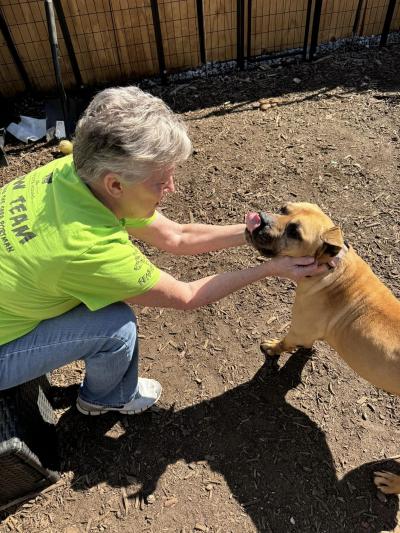
Let's make every shelter and every community no-kill by 2025
Our goal at Best Friends is to support all animal shelters in the U.S. in reaching no-kill by 2025. No-kill means saving every dog and cat in a shelter who can be saved, accounting for community safety and good quality of life for pets.
Shelter staff can’t do it alone. Saving animals in shelters is everyone’s responsibility, and it takes support and participation from the community. No-kill is possible when we work together thoughtfully, honestly, and collaboratively.
